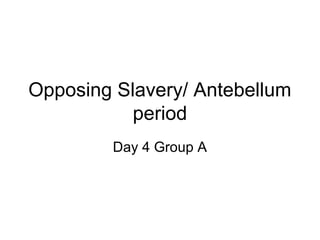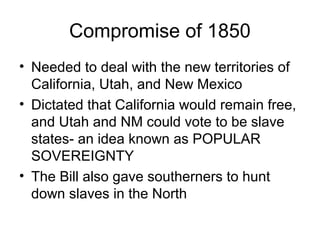The document discusses the political actions and moral arguments of those opposed to the spread of slavery in the United States between 1820-1854. It outlines the Missouri Compromise of 1820, which divided the country along the 36th parallel to maintain a balance of slave and free states. It also discusses the Mexican-American War, the Compromise of 1850, and the Kansas-Nebraska Act, all of which reopened debates around the expansion of slavery and territorial sovereignty, further dividing the nation along sectional lines and fueling the growing abolitionist movement in the North.














